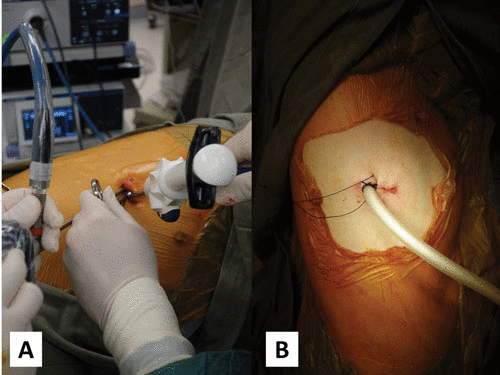Dr. Shilpa Gandhi | Leading Consultant Minimally Invasive Thoracic Surgeon In Nagpur
Meet Our Doctor
Dr. Shilpa Gandhi
MBBS, DNB General Surgery DNB Thoracic Surgery
Dr. Shilpa Gandhi is a trusted and experienced healthcare professional known for her compassionate care and expertise. Committed to delivering personalized treatments and improving patient well-being.


Surgery For Complicated TB In Nagpur
Tuberculosis (TB) is the serious infectious disease primarily affecting the lungs. While many cases of TB can be treated effectively with antibiotics, complicated TB occurs when the infection becomes resistant to standard treatments or leads to severe lung damage. In such cases, surgery for complicated TB may be needed to improve the patient’s quality of life, manage complications, and prevent further damage to vital organs.Tuberculosis (TB) is a serious infectious disease that primarily affects the lungs, but it can spread to other parts of the body. While the majority of TB cases can be treated with a course of antibiotics, complicated TB refers to instances where the infection has progressed to more severe stages, often causing significant lung damage, fluid accumulation, or complications that standard treatments cannot address. In these situations, surgery for complicated TB may become a necessary option to improve outcomes and restore health.
What is Complicated TB?
Complicated TB refers to cases where the tuberculosis infection has advanced to the point where it causes significant damage to the lungs, pleura (the lining surrounding the lungs), or other organs. These complications may include:
- Lung cavitation: The formation of cavities in the lungs where bacteria can persist.
- Pleural effusion: The buildup of fluid around the lungs that can lead to breathing difficulties.
- TB of the spine (Pott’s disease): TB infection spreading to the spine, leading to vertebral collapse and neurological complications.
- Miliary TB: A form of TB where the infection spreads throughout the body via the bloodstream, potentially causing multiple organ failure.
- Drug-resistant TB: When the TB bacteria become resistant to the most commonly used antibiotics, making treatment more difficult and lengthy.
If left untreated or inadequately managed, complicated TB can lead to irreversible damage to the lungs and other organs, sometimes requiring surgical intervention to alleviate symptoms and improve prognosis.
When is Surgery for Complicated TB Needed?
Surgery is generally considered a last resort for treating complicated TB, usually after prolonged or unsuccessful antibiotic treatment. Surgery for TB is often necessary in the following situations:
- Lung Destruction: In cases where TB has caused large cavities or severe damage to the lungs that significantly impairs breathing and lung function.
- Pleural Effusion: If fluid accumulates around the lungs (pleural effusion) due to TB infection, and drainage or other interventions don’t alleviate symptoms.
- Drug-Resistant TB: When TB bacteria become resistant to standard antibiotics (multidrug-resistant TB or MDR-TB), and the infection continues to spread despite treatment.
- Abscess Formation: Large TB-related abscesses or pockets of pus in the lungs that do not respond to antibiotics and need to be drained.
- Spinal or Joint Involvement: In cases where the infection has spread to the spine or other bones, leading to deformities or paralysis, surgery may be required to stabilize the spine or remove infected tissue.
Types of Surgery for Complicated TB
Several surgical approaches can be used to treat complicated TB, depending on the location and severity of the infection. The most common types of surgery for complicated TB include:
Lung Resection Surgery (Pneumonectomy or Lobectomy) For patients with lung cavitation or severe lung damage, a lung resection procedure may be required. This surgery involves removing the infected or damaged portion of the lung to prevent the infection from spreading and to improve lung function. The two main types of lung resection surgery are:
- Lobectomy: Removal of a portion of the lung (one lobe).
- Pneumonectomy: Removal of an entire lung if a infection is widespread in one lung.
Benefits of Lung Resection Surgery:
- Helps eliminate infected lung tissue and reduce the bacterial load.
- Improves the patient’s breathing function by removing damaged tissue.
- Reduces the risk of recurrent infections.
Risks of Lung Resection Surgery:
- Risk of infection, bleeding, or lung complications.
- Possible long-term effects on lung function, especially after a pneumonectomy.
- Risk of pleural effusion and scarring.
Drainage of Pleural Effusion When pleural effusion (fluid around the lungs) occurs due to TB infection, it can cause breathing difficulty, chest pain, and other symptoms. Surgery to drain the fluid or remove infected tissue may be necessary if other methods, such as thoracentesis (a needle to remove the fluid), do not work. The two main surgical approaches are:
- Thoracotomy: A procedure where the surgeon makes an incision in the chest to drain the fluid and remove any infected tissue.
- Video-Assisted Thoracoscopic Surgery (VATS): A less invasive technique where small incisions and a camera are used to drain the pleural effusion and treat the infected tissue.
Benefits of Drainage Surgery:
- Immediate relief from symptoms like chest pain and breathing difficulties.
- Prevents further fluid buildup and potential lung collapse.
- Minimizes long-term damage to the lungs.
Risks of Drainage Surgery:
- Infection at the surgical site.
- Damage to the lungs or surrounding tissues.
- Potential recurrence of pleural effusion.
Spinal Surgery for Pott’s Disease If TB has spread to the spine, leading to Pott’s disease (spinal TB), surgery may be required to stabilize the spine, remove infected tissue, or correct deformities caused by the infection. Spinal TB can cause significant pain, paralysis, and deformity if left untreated.
Types of Spinal Surgery for TB:
- Debridement: Removal of infected tissue from the spine.
- Spinal Fusion: Stabilizing the spine using metal rods or grafts to prevent deformity and support healing.
- Vertebrectomy: Removal of a vertebra that has been severely damaged by the infection.
Benefits of Spinal Surgery:
- Stabilizes the spine and prevents further neurological damage.
- Reduces pain and improves mobility.
- Corrects spinal deformities caused by TB infection.
Risks of Spinal Surgery:
- Infection, bleeding, or nerve damage.
- Potential complications from the use of metal hardware.
- Long recovery times and possible need for physical rehabilitation.
Abscess Drainage Surgery In cases of TB-related abscesses or pockets of pus in the lungs, abscess drainage surgery may be required. The surgeon will drain the infected material to prevent further damage and to help the patient recover from the infection.
Benefits of Abscess Drainage:
- Immediate relief from infection and symptoms.
- Helps to prevent the spread of infection to other areas of the body.
- Reduces the risk of lung collapse or further tissue damage.
Risks of Abscess Drainage:
- Risk of infection or recurrence of abscess formation.
- Possible damage to surrounding tissues and organs.
What to Expect Before, During, and After Surgery for Complicated TB
Before Surgery:
- Patients will undergo a full evaluation, including chest X-rays, CT scans, and sputum tests to assess the extent of the infection and determine the most appropriate surgical approach.
- Preoperative care will include managing any active infection with antibiotics, ensuring the patient is stable before surgery.
During Surgery:
- Surgery for complicated TB is generally performed under general anesthesia.
- Depending on the surgery type, the procedure may involve significant tissue removal (e.g., pneumonectomy) or less invasive techniques (e.g., VATS for pleural effusion drainage).
After Surgery:
- Recovery time will vary depending on the type of a surgery performed. Patients may need to stay in the hospital for several days to weeks, especially if the surgery involved major lung resection or spinal surgery.
- Pain management, respiratory therapy, and monitoring for complications will be key components of the recovery process.
- Regular follow-up appointments will be necessary to ensure proper healing and to monitor for any recurrence of TB infection.
Benefits of Surgery for Complicated TB
- Prevents Further Lung Damage: Surgery helps remove infected tissue, which may otherwise continue to spread and damage the lungs.
- Improves Breathing and Quality of Life: By alleviating complications like pleural effusion or lung cavitation, surgery can significantly improve lung function and breathing.
- Reduces the Risk of Recurrence: Surgical intervention can lower the risk of repeated infections, ensuring a better long-term outcome for patients with complicated TB.
Risks of Surgery for Complicated TB
- Infection: Surgery carries a risk of infection, especially in cases where the infection has spread extensively.
- Breathing Issues: After lung surgeries such as pneumonectomy, there may be short-term difficulty breathing, requiring further management.
- Long Recovery: Surgery, particularly for TB-related abscesses or spinal involvement, can result in a lengthy recovery period, including rehabilitation.Contact Us
Conclusion
Surgery for complicated TB is an essential treatment option when antibiotics alone cannot control the infection or when severe damage to the lungs or other organs occurs. Whether it’s lung resection, pleural effusion drainage, spinal surgery, or abscess drainage, surgical interventions can significantly improve a patient’s prognosis and quality of life.Book an appointment with Dr. Shilpa Gandhi for specialized thoracic care.



